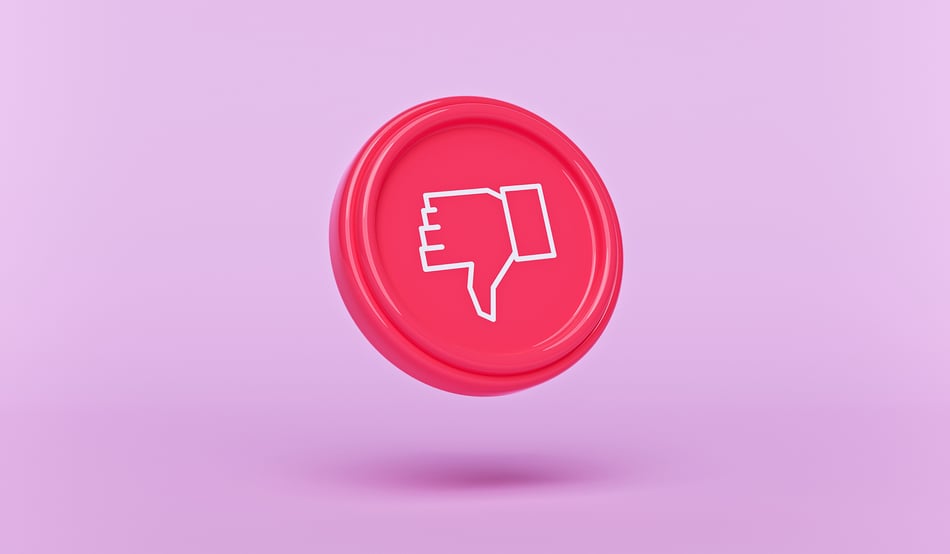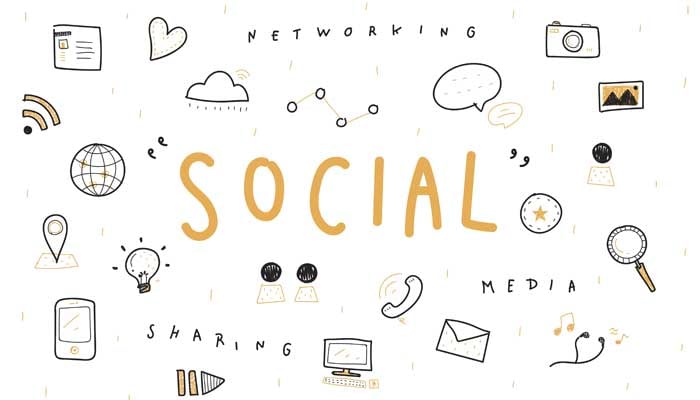Episode 24 - Key Mistakes to Avoid When Responding to Negative Comments Online


Don't Miss An Episode, Subscribe Now

Podcast Episode 24: Meredith Olmstead and Ida Burr discuss how to respond and deal with negative comments and feedback, especially on social media for banks and credit unions. FI GROW handles a lot of those situations with its clients. When dealing with negative reviews or feedback online, the first thing you want to do is not be afraid of it. Tune in for the best practices for responding to negative comments!
Transcription:
Have you ever been talking about something that's really useful and thought that's a great idea. Let's hit record so we can share this with everyone. If you're looking for best practices for your bank or credit union, join us while we talk all things, sales, marketing, and strategy for financial institutions. Let's make it happen with FI GROW Solutions.
Meredith Olmstead:
Hi, there I'm Meredith Olmstead, founder and CEO of FI GROW Solutions. We are a digital marketing and sales consulting agency. We work exclusively with banks and credit unions. And I was just here having an awesome conversation with our digital ads manager, Ida Burr. Say hi Ida.
Ida Burr:
Hey, everyone.
Meredith Olmstead:
So we were just talking about how to respond and deal with negative comments and feedback, especially on social media for banks and credit unions. We do that a lot. We handle a lot of those situations with our clients. And so I was like, hold on, let's push record and share some of these suggestions with our readers and our viewers, because I think we get a lot of these kinds of fears and questions from people. And so I wanted to just jump right in and talk about them. So the first thing I want to say really quickly about handling negative comments and negative reviews or feedback online is that the first thing you want to do is don't be afraid of it. Okay. So don't be afraid to have reviews on. You obviously are going to have Google reviews out there as well.
Meredith Olmstead:
So this all kind of pertains to Google reviews and social media content and reviews. But a lot of people are like, oh, I don't want to turn on my reviews. Somebody might say something bad on like their Facebook page or wherever they might leave them. We say, no, no, no. Open yourself up for feedback. As long as you address those comments quickly, positively, and proactively, it is a great way to demonstrate stellar customer service, right? And that's what most smaller financial institutions are all about. So definitely leave yourself open to negative feedback, because if you don't hear it, they're going to be saying it anyway, and you're just not going to get the opportunity to respond.
Ida Burr:
Well and what could also happen is they go and find some little page like on MapQuest or wherever else your financial institution may have a profile that you're not actively monitoring and they're leaving bad reviews there and you have no idea it's happening.
Meredith Olmstead:
Yeah.
Ida Burr:
So.
Meredith Olmstead:
So it's best on these major platforms, embrace the fact that you're going to get reviews there. Some of them are going to be good. Some of them might not be so good, but you have to address those issues. And so acknowledging. So the first thing is don't be afraid. The second thing I think I would say is of acknowledge the emotional experience of the person who's leaving the feedback or the review. While they might be being a jerk or like unfair, or they might be completely in the wrong, they're having an emotional experience and that's what's driven them to leave this information online. Now, maybe they calm down an hour from now and they regret putting up whatever they did. Sometimes you might even have people go back and delete some of what they might've said, but regardless of what ends up happening in that moment, the emotional experience is important to acknowledge.
Meredith Olmstead:
So if somebody comes in is really mad about not being able to access their account because they are having some problem with a new online banking platform, or they tried to do something at a teller and the teller was rude to them or like the drive through window was closed when it was supposed to be open, like who knows what the scenario could be, but they're having a frustrated, angry reaction to that acknowledge that. I'm so sorry that this happened to you. That sounds like a frustrating situation. I can understand why that could be an annoying experience to have to go through, like all that kind of language where you really just openly saying, I'm hearing you, I hear your anger, I hear your disappointment, I hear your frustration and I'm glad that you're sharing it with us. So that would be the first thing for sure once you start responding, is to acknowledge the emotions of the person who's leaving the review.
Ida Burr:
Yeah, absolutely. And I think the next important piece too is to try not to get too defensive in your response. We see it all the time where like, it's pretty clear that it's kind of user error, not like a error on the bank's part. So just trying to take that offline and discuss it privately versus trying to make yourself look good online. A lot of the time people are able to read a review and tell if it's fair or not. It's not really the best idea to get into a back and forth publicly about what exactly is going on there.
Meredith Olmstead:
Yeah. And for sure too, with specific instances or situations, you don't want the user feeling like they are being like attacked back necessarily, but also you need to remind them that really like, if it is a very personal situation where like account details need to be shared, or there needs to be some back and forth, like maybe somebody's, a check bounce that shouldn't have, or something like that, or a loan payment wasn't processed properly, getting that kind of an interaction offline as quickly as possible is really, really important. So positively responding and then saying, we'd really like to help make this situation right. Can you call us or what is the best way for us to contact you? That kind of thing.
Meredith Olmstead:
I also remind people, don't be afraid to publicly apologize for a mistake. So if you do have a situation, we see these a lot where like somebody's rude, they say that a teller or somebody in a drive through or something like that is rude to somebody. And I'm never going to that branch again, because so and so was so incredibly rude to me. You see that a lot, right? So there's nothing wrong with saying, I'm really sorry that you've had a negative experience at that branch. That is not the level of customer service or member service we strive to achieve. Thank you for sharing that feedback and giving us the chance to make the situation right.
Meredith Olmstead:
Or even treat it as a learning opportunity for our staff in our institution. Like that goes miles to taking the wind out of somebody's complaint, not saying that they were wrong. Anytime you think somebody might have had really bad member service or customer service, you want to learn more about that. So really acknowledging it, thanking them for the giving you the opportunity to make it right, and then asking them if you can contact them offline to get more information about what exactly happened. And then you can take the interaction offline while also appearing to have addressed it in the public space.
Ida Burr:
Yeah, exactly. And also just empathizing with that person saying like the language you were using, this sounds like it's a really frustrating situation. We're so glad that you brought it to our attention. Please be sure to message us your phone number. We'll have somebody contact you immediately.
Meredith Olmstead:
Yeah. The other thing you've said that you've seen a few times is when multiple people on a page are arguing with each other, like what do you do then?
Ida Burr:
Yeah. I mean, that gets a little sticky trying to diffuse it. But just kind of, depending on the nature of it, sometimes people are arguing on something that's not even like necessarily a bad review or anything, but like say you post the picture of, and like a tip. And somebody's like, oh, well I never opened a savings account because X, Y, Z, and it's better to invest your money this way. And then you have like a back and forth like that. Just trying to stay light, trying to thank both of them for their differing opinions and just kind of diffusing it as soon as possible. So you don't end up with 100 comments of people putting their two cents in.
Meredith Olmstead:
Yeah. I think the last thing too is really just try to avoid making excuses for whatever situation it is. Because as humans, it's really like, and as leaders of an institution, right, like if you or if you feel like somebody is attacking your staff or your team even online, not directly in person, but even online, you may want to jump into their defense. Right. I mean, I get that. That makes sense.
Meredith Olmstead:
But what we always tell people is look, try to avoid making excuses for potentially bad behavior even if it didn't really happen like again, acknowledging emotions, taking the details of a situation offline as quickly as possible. And then recognizing that if a user is being like rude or disrespectful in their review, that is going to come through all on its own. You don't have to call that out as an institution and say, wow, that was an incredibly unprofessional way to share that feedback with us. You don't have to say that to them. Everybody sees that. And so let the behavior, the bad behavior of a negative, potentially a negative user speak for itself instead of you jumping in and like kind of going at it with them back and forth.
Ida Burr:
And nine times out of 10, after having like a very straightforward and like a professional conversation with that person offline, they'll go back and change their review to tone it down a bit or even completely delete it. So it's not something you call out. They'll realize it down the line usually.
Meredith Olmstead:
And we've also seen where, when you deal with it really positively offline, they'll come back and add another comment that says, Hey, I just spoke with so and so at blah, blah, blah bank or institution. And they handle this for me. Thanks. Great job. And they'll even publicly acknowledge what you did to address the situation offline. So these are great suggestions. Thank you so much, Ida, for sharing your expertise. I know you've been dealing with social media for banks and credit unions for a long time. So I know you've seen it all when it comes to negative comments. So if you all want to learn more about FI GROW, please feel free to visit our website at figrow.com. We also have some great other podcasts around social media marketing for banks and credit unions. And the FI GROWTH Academy has several courses that are specifically related to running ads and also dealing with social media for banks and credit unions. So it might be a great place for some of you marketers to visit. So otherwise let's just get out there and make it happen.








Blog comments